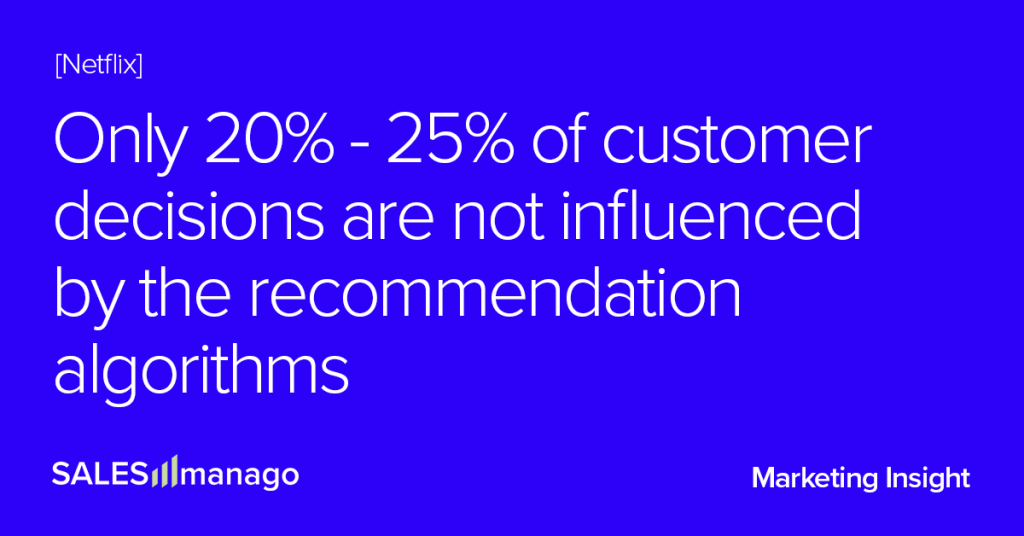
We hear a lot about the benefits of personalization. After all, as much as 91%of us consumers are more likely to shop with brands that provide offers and recommendations that are relevant to what we search for. However, when we see content perfectly tailored and personalized to our tastes, we surely realize there must be something more behind the information bubble around us, right?
You don’t even realize when internet becomes constricted
Do you sometimes feel like you’ve reached the very end of the internet because you see the same content over and over again? Well, you’re not wrong, in a way.
Innocently scrolling through the internet or revisiting your go-to marketing-related sites, you don’t even realize when the content you see becomes suspiciously similar to the ones you’ve already seen on other portals and, for some reason, fits perfectly into your worldview.
Take Facebook, for example. About 74% of respondents are unaware that Facebook keeps a list of their interests and traits, and 51% are uncomfortable with the collection of this information.
In addition, social media users say it’s easy for websites to identify their hobbies, interests, ethnicity, and even political affiliation/religion.
Algorithms lurk behind everything we look for
Behind this “perfectly aligned content” is an algorithm—a finite sequence of well-defined, computer-executable instructions that determine what information (including articles, blog posts, or even Instagram stories) reaches the user.
The vast majority (if not all) of companies use the data we give them—knowingly or not—to deliver highly personalized content selection based on parameters such as:
- demographic data,
- time spent online,
- online shopping habits,
- details you pass,
- privacy and cookie settings.
Companies use these data points to create algorithms, based on which we see certain content. The result? We are inundated with articles, posts, and images that support our vision of the world, reassuring us that our point of view is correct because, hey, these are the only things we see or hear, so they must be right.
We all have tunnel vision when it comes to online content
Combining algorithms with our tendency to search online for things that confirm our beliefs, it’s easy to get ourselves into a filter bubble. The term is not that new, as it was coined by Eli Pariser in 2010, and it refers to the result of algorithm-based actions that determine what we encounter online. According to Pariser, algorithms create “a unique universe of information for each of us … which fundamentally alters the way we encounter ideas and information.”
The filter bubble costs can be both personal and cultural. Personalized filters loop us into our own propaganda—constantly showing us the same ideas—which we become prisoners of after some time. As we see the same kind of content over and over again, important information simply passes us by, thereby ridding us of perspective.
Real-world consequences of algorithms even affecting US elections
Discussions of the filter bubble problem heated up in 2012 when research showed that this clever viewpoint narrower used by search engines influenced the 2012 US presidential elections by inserting significantly more links for Obama than for Romney in the run-up to the election.
A study conducted on Google Search revealed that the filter bubble problem is alive and well, despite Google’s claims that it is reducing. Another study involving individuals entering identical search terms at the same time revealed the following:
- Most attendees saw different results. The variances could not be explained by changes in place or time or by being logged into Google.
- On the first results page, Google included links for some participants that it did not include for others, even after logging in using incognito mode.
- Results in the news and video infoboxes also varied significantly. Although people searched at the same time, they were shown different sources.
- A private browsing mode and being logged out of Google offered almost no filter bubble protection.
Interpretation of results shows that even if we are looking for the same content, we are still influenced by the individual preferences we have developed year after year spent in the magical universe of the Internet. But what if we want to leave the safe space that we have partially contributed to creating?
How to burst a bubble and step out of algorithm propaganda
In theory, our online behavior with the help of algorithms creates for us, well… an information bubble that only contains things we agree with, so what’s the problem?
Being trapped in a bubble often means stewing in your own juices, whereas there are a lot more juices to stew in. Here are some top tips to burst your bubble, that dims your view of things outside your online comfort zone:
- Go over the algorithms – algorithms are based on websites, portals, or profiles you already like and follow. Not often we engage with the content we don’t feel comfortable with, but that’s exactly what can help us to step out of defined preferences of ours.
- Broaden your horizon – Use a variety of social media platforms. For example, if you are exclusive to Twitter and Facebook, try LinkedIn or Instagram.
- Seek feedback from those with different point of view – engage people around you in discussions, talk to those you’ve never talked to before, and they may be able to show you some new perspectives that you can then take into the online world.
However, is it possible to get rid of the bubble completely? I’m afraid not. Yes, you can expand it or diversify the content a bit, but to completely destroy it? That would be the opposite of the very concept of a bubble.
If you would like to know more about personalized content, algorithms and marketing automation tools, see our other resources here.
 Follow
Follow
















